|
Vidas: Hi guys, this is Vidas!
Ausra: And Ausra! V: Let’s start episode 475 of Secrets of Organ Playing Podcast. And today, we would like to talk about our recent trip to Denmark to Svendborg and Copenhagen. In Svendborg, we played our organ duet recital, in the Svendborg International Organ Festival, so I thought it could be a nice opportunity to talk about it in greater detail. Right, Ausra? A: Yes. V: Here is the video of the recital for our subscribers to watch. So, Ausra, what was your overall experience about this trip? A: About the trip, or about the concert? V: Let’s start about the trip. A: Well, it was a hard trip, because I was sick during the entire trip, so I had a very severe bacterial infection, and it just began during our trip at the beginning of this, so I had a fever while playing this recital, so it was basically a tough trip. V: It was difficult, I think, to travel without antibiotics, and without a prescription, you cannot get it easily. A: You cannot get it at all without a prescription, so… V: Right. Even at home in Lithuania, it’s a tough time, sometimes, to get those. You have to go to the doctor. But if you are traveling abroad and you are a foreigner, you have to know the local rules, and it wasn’t easy to find out. But, luckily, we managed to call a doctor late at night, and had a phone consultation with him, and he prescribed antibiotics for Ausra, which started helping her, I think. Right? A: But that was already after the recital, so it didn’t help me to perform. V: So, talking about performance, what did you think about that organ, first of all? A: I liked it very much, actually. I thought as a Marcussen, it was really nice. V: It was an improved Marcussen from 2016. They did renovation on it and added additional manuals—swell manual plus additional combination action, I think, plus some other things, too, so that the organ wouldn’t sound so screamy. A: Well, the more I travel and the more I try new instruments, actually, the more I probably dislike our organ at St. John’s’s Church, because it’s a clumsy and really difficult instrument to play. Despite all this beautiful church and all this wonderful acoustics, and despite some really nice organ stops, but in general it’s very hard to play it. V: It needs, also, renovation, I think, about mechanics. A: And you know, when you travel, for example, as we went to Alpe d’Huez or here in Svendborg, and you find these spectacular organs, well taken care of, and it’s just wonderful. V: Exactly. What did you think about our program? I know it was a new one for you, and not a very easy one. A: And I think it was new for you, too, or not? V: It depends. Some of the pieces I played as a solo, maybe we should… A: Oh, okay, I see, so I did the hard part, then. Yes? Learning all the new stuff! V: Yes! Maybe we should list the pieces that we played, first. We played…. A: Of course, nobody will no them, because they are all Lithuanian. V: We played an all Lithuanian program, and started with an arrangement of “Symphonic Poem in the Forest,” by Mikalojus Konstantinas Čiurlionis, a Lithuanian composer from the beginning of the century, end of the 19th century. And, I think that was the first time it was performed on the organ. A: Yes, definitely. V: I think my own impression was that I liked it, even when we practiced on our little home organ, and when we started playing it, it was such a wonderful experience in Svendborg. A: Yes, true. V: It sounded like an orchestra, really. Although, registration changes had to be done very cleverly and set up in advance, and it was very long—time consuming. A: Yes, I think this rehearsal a day before a recital was the longest that I have had in my entire life! V: Plus you were with fever. A: Yes. V: And then we played, what… A: “Reverie”, by Juozas Naujalis. V: Romantic composer. It was also a transcription; originally, it was written for string quartet, and it was a nice relief from Čiurlionis’ “Symphonic Poem.” Then, we played two pieces, or two cycles, basically… A: Well, one piece, and one cycle, to be exact. V: Yes, by a contemporary Lithuanian composer, Kristina Vasiliauskaitė. One was her early work for organ—for double organ, basically, “Sounds of the Forest,” which we dubbed more like a train sound, because it reminded us of train tracks. And the other one was a cycle with four Lithuanian folk songs! Which one do you like more? A: “Songs” of course! V: “Songs.” A: “Song Cycle,” yes. V: Her later style is more user friendly, although this modern sounding early piece was an interesting contrast, I think, too. A: Yeah, and then we played the Sonata “Ad Patres” by Bronius Kutavičius. V: Which was originally created for two organists and only later arranged for one organist. A: And Vidas and I both have played this Sonata as soloists. Of course, I don’t think… Have you ever performed it? Ah yes, you performed once at Saint John’s Church, and I played it way back when I was still a student at the Academy of Music. V: I think that my impression was that playing solo was easier. A: I think so, too. It’s a tough piece to play together, because it’s sort of a minimalistic style, and it’s very serious in character. It’s based on a cycle of funeral symphony paintings by Čiurlionis. V: Yes. A: So, it’s not an easy piece to manage, even psychologically. V: Now, we played two of my own pieces. One was the piece that we played once before, Fantasia on the Themes by Čiurlionis created by me, A: At least in this one, we could relax a little bit. Yes? V: Yes, this was… A: ...but of course, if you can call relaxation when the key changes like every eight measures or each four measures… so… but at least we have played it before performing it, probably played it before. V: And then, we finished our program with my arrangement for organ duet of Veni Creator Spiritus. It was originally opus 3, but I added a second organ part, and basically, it became like a new piece. When we practiced it at home, it sounded really convincing as a duet piece. It didn’t sound like a solo piece. A: True. V: I mean, both organists had enough to do on their own. A: More than enough, I think. V: Did it sound okay in Svendborg? A: You know, I can’t say how it sounded in Svendborg. I hardly remember what I was playing and how I was feeling. V: I guess we’ll let our audience decide. And, we finished our program with an encore, because people seemed to like our playing, and... A: Yes, we received standing ovations! V: Yes, and they demanded more, so we gave one more piece for them. It was a choral piece by the composer of Juozas Naujalis’ age, Juozas Gudavičius, a well known Lithuanian anthem called, “Kur giria žaliuoja” or in English it would be, “Where the Forest Is Growing” probably. And it is famous because it is sung in every massive song festival in Lithuania. And it’s so beautiful that it could be our national anthem, basically. A: Yeah, it would be better than what our anthem is now. V: It has two stanzas, or verses. We only played the first one, because it didn’t have text, obviously, but next time, I would prefer two, because it’s so lovely. A: Well, I think it’s always better to do less than too much. V: Yes, I would play less than 10 stanzas. But two, I think, is okay. A: I think moderation in life is one of the most necessary things, but not everybody can understand it, of course. V: No, not everybody. So this was our experience at Svendborg. In general, the weather was sort of good for us. A: Well, in general the weather was very changing rapidly and quite dramatically, because when we arrived, it was almost 30 ºC, and then during the next day, it began to change, and then the third and the fourth day were quite cold, actually, with rain and wind! V: And what did you think about Denmark in general? And Copenhagen? A: Well it’s a very clean and nice country, sort of a little bit boring. I found people quite cold, V: But friendly... A: Well… V: ...and helpful A: ...well, yes… V: ...in most cases. A: ...well, yes. But sort of, you know, nobody is in a hurry… V: Relaxed. A: Yes. And all those bicycles! You need to be really careful to not get killed by one of them. V: And now e-scooters zooming besides them, too! So, it’s tough to cross the street in Denmark. But a nice country to live in, I think. A: Yes. Did you get any adrenaline during the recital or before or after? V: At first, I was a little bit worried that you might not make it to the recital, and I would have to play your part, too, alone! A: How do you manage that! V: I don’t know. The night before, I was sort of, before I went to sleep, I was thinking, “What could I do to play the same exact program, but with my own two hands and feet.” A: I guess that’s impossible in most of the cases. V: Maybe I should have improvised a little bit and played some music here and there. A: Yes, and have four extra legs like an octopus, yes? V: Yes! Good that you managed to play. Saved me lots of nerves. A: Yes, but you know, it damaged my health a lot. V: Exactly. Did you feel adrenaline when you played, Ausra? A: No, not at all! And it was strange, because usually I get some adrenaline, either before or during or after recital. Because I remember when we played in d’Huez, we did all duets, but you did one improvisation, and actually, I got adrenaline during your improvisation, because I was playing the “Brandenburg Concerto” after that, and my hands were shaking. But in Svendborg, no, because I guess because of the fever, all my adrenaline was gone, so… V: I know what was different. In Svendborg, you didn’t have to fight that fly! A: But you know, in d'Huez, I fought that fly after most of the rehearsal already down on the floor, and I could play how I wanted. V: Right, but the feeling of the battle still was there with you. A: Do you think so? It might be. V: So guys, this was our experience. We hope you have enjoyed the recording, and if you haven’t listened to it yet, we will try to share it in this conversation, too. Alright, please send us more of your questions; we love helping you grow. And remember, when you practice, A: Miracles happen.
Comments
Today is Thursday and the last day of summer lunchtime organ recitals at Vilnius Cathedral. This time Balys Vaitkus played Johann Sebastian Bach's Toccata and Fugue in D Minor, BWV 565 and German composer's Philipp Wolfrum's Sonata No. 1 in Bb Minor, Op. 1 from the late Romantic period. While Bach's work is probably the most famous organ piece in the world, Wolfrum's Sonata No. 1 is rarely performed. But surprise isn't here. Keep reading.
I came to the Cathedral about 20 minutes prior the recital, made some photos of the interior and was about to find a place to sit when a man came up to me and introduced himself. This was Andreas Spahn, German church organist and member of our Secrets of Organ Playing community who wrote to me some time ago about the possibility of listening to me play while he was visiting Vilnius. I told him that during that time I'm not playing any recitals in Vilnius but invited him to come to this concert at the Cathedral. But completely forgot until now. So you can imagine how I felt when he introduced himself. We sat down together before the recital started and I suddenly had an idea. I asked him if he wanted to be a guest on my Secrets of Organ Playing podcast and he agreed. Then we talked a little about how he first fell in love with the organ, what was the first organ that he heard, what is he currently working on, what are some of the challenges that he has to overcome etc. It was sort of a pre-interview, like a short rehearsal so that he could think over about the answers over the weekend and come to the church on Monday relaxed and ready to talk. Then the recital started and we heard the unforgettable opening sounds of Bach's D Minor Toccata. This music is quite spontaneous, like an improvisation. The passages run up and down the keyboards with quite a few echo effects. The fugue started a bit too fast for my taste but the organist managed to play it at this tempo without skipping a beat proving his virtuosity. In the middle of the fugue we could hear nice echos between the manuals which led to the strong culmination. The fugue ended similarly like the toccata had started - with the virtuoso runs and passages. Wolfrum Sonata has 4 movements - a medium-tempo prelude with dramatic harmonies, a slow movement with lyrical melodies, a solemn choral which leads into a fast-motion fugue which again sounded a bit too fast to me. Nonetheless the recital was very solid and I had a great pleasure listening to rarely performed German Romantic work by Wolfrum. Balys did a very good job at making this Neo-Baroque organ sound as Romantic as possible. And Bach's D Minor toccata and fugue is always fun to hear as well. When the concert ended Andreas and I went to congratulate the organist Balys Vaitkus. I introduced him Andreas in English but as soon as Balys found out he's from Germany, they switched to German. I had to remember what's left from my non-existent German language skills. We parted ways agreeing to meet on Monday for the podcast conversation and I went to meet @laputis at school where she had 3 faculty meetings today. The school hasn't started yet but meetings already have. It might well happen that @laputis and I will have an opportunity to play at Andreas' church next summer because we are invited to perform organ duets at the organ festival in Schabischgmunde near Stuttgart. Incidentally, Andreas' church is also about 50 km from Stuttgart so he invited us to perform there too. I never know what kind of surprises are waiting for me when I go to organ recitals so I try keep my options open. A few days ago when I was at the concert in Vilnius Cathedral listening an organist Jonathan Embry from the US play this Neo-Baroque Alexander Schuke organ, my colleague came up to me afterwards at the restaurant where we were celebrating and asked if I could look at her positiv organ at the Reformed church in Vilnius which needed tuning and a bit of regulating.
She said it has a few stops and their church received it as a donation from Germany recently. Being not an organ builder I reluctantly agreed and this morning I came to her church. In the Soviet times it was converted into a movie theater called "Victory" ("Pergale" in Lithuanian). But when Lithuania became independent the building was given back to the Reformed community. She met me outside of the building at led me through the construction workers into the church and showed me the organ in the back of the nave. Actually two organs - the one on the left is a two manual Viscount digital organ and on the right - our little positive organ. Sometimes it's called Continuo organ because often such instruments are used to play keyboard continuo parts in the orchestral works of the Baroque period. It has only one keyboard or as we call it one manual, handles on the sides for moving and a few rows of pipes or stops. In fact it has Gedackt 8', Rohrflote 4', Principal 2' and two divided stops - Quinte 1 1/3' and Super Octave 1'. Those divided stops can be played in the bass or the treble range. They can be useful when bringing out the melody in the right hand or the left hand. I took the panels out so that I could reach the pipes and checked the tuning. Most of the stops were OK but the Gedact 8' needed some tuning in the upper range as well as two keys were stuck. So I had some work to do in finding out which way the regulation screws to turn. With the little help of trial and error I discovered I needed to turn the screws clockwise. When I tuned some of these pipes the most difficult thing was locating them and putting them back into place. I kept losing my view of those pipes the minute I turned my eyes away to the keyboard. In order to tune the Gedackt pipe I had to push in or out the roof of the pipe. When you push it in, the pitch becomes higher, when you push it out - the pitch becomes lower. The roof of one particular pipe had stuck too deep for my fingers to catch it. I needed some tools to get it out. So I went to my church to get the pliers while my colleague practiced on the organ for her upcoming recital. Unfortunately, I left the keys from the organ at home but fortunately security guard had a pair of scissors and while one of us held the pipe, the other moved its roof out. I thanked him and went back to the Reformed church and put the pipe back into the organ. Then my colleague turned my attention to the wooden ceiling which is preserved and is very valuable historically. We have a similar ceiling in the recently reconstructed palace of Grand Dukes but this one of course is the original. Then I asked my colleague to play the organ a little bit while I went to the front of the nave to listen to how it sounds. I was amazed how the organ sound filled the room. Despite of its small size (only 5 stops) this little positiv organ came alive in this acoustical environment. The only thing I regret from today is that I forgot to make a video demonstrating how this organ sounds. Maybe next time when they need me some other time. I hope they will use this organ for congregation singing and for concerts more often because it sounds really well in this space. Plus it will be really good for its mechanics to be used regularly.
Vidas: Hi, guys, this is Vidas.
Ausra: And Ausra V: Let’s start episode 482, of Secrets of Organ Playing Podcast. This question was sent by Susan. she writes: Hello Dr. V. I have subscribed to the Pedal Virtuoso Master Course. I am 76 years old, started playing organ after retiring from a non-musical career at age 70. I have taken organ lessons for 5 winter seasons in Florida (I am a snow-bird). I have fibromyalgia and found after week 1 of pedal exercises that my legs were very sore and tired; can deal with the soreness, but fatigue make them want to give out. Week 2 I could only practice every other day. Week 3 I did not start, because I had to continue to practice and be able to play for weekly church service, plus this past week was practicing for a funeral service. So now I am a week behind. Do you think I should continue this course? Also, regarding the lessons—are the arpeggios supposed to be all legato? I wear size 10 1/2 shoe but still find it difficult to reach g to c. Thank you for your consideration of my problems. Susan V: Let me first congratulate Susan for choosing to practice this strenuous course, right? A: Yes. It’s really a challenging course. V: Not too many start, and even less people finish what they start. But those who do finish, reap great benefits. So she is basically feeling strenuous in her, stress in her legs and they’re very sore from practicing pedal arpeggios and scales. Is this normal, Ausra, or is she doing something that could be avoided? A: Well since she has a health condition, specific health condition, yes, I think she maybe need[s] to consult a physician before proceeding with this course. I don’t know if it’s okay for her to practice. V: Mmm-hmm. A: Because really those arpeggios to play legato are really hard. Although she has a big foot but, long foot, but it still probably might be not [a] wise thing to do. V: Do you think she needs to play everything legato? A: Well, it’s hard for me to say about an exercise but if for example it would be a piece let’s say written by some great French master… V: Mmm-hmm. A: Dupre or Vierne, then yes, you would have to play it legato, of course. But what I do… V: Mmm-hmm. A: myself in places like this, if I have let’s say to play legato, G to C, with right foot, yes? I quickly, right before finishing that G note, I would place my left foot on that… V: Substitute. A: Substitute, yes. V: Mmm-hmm. A: And that’s how I would do it. V: For some people maybe, it maybe wise to adjust a little bit some pedaling... A: True. V: To their condition. And, but I don’t think she has to put so much stress on playing it so perfectly, you know. These are just exercises, not French masterpieces. And the point of this course is just to improve your pedal technique, right? And probably improve your ankle flexibility as well. So whatever you do, don’t overextend yourself. Don’t feel that you have to play everything one-hundred percent perfect. This is one point. And another point—take frequent breaks and rest. Maybe walk and do some other things which involve a different set of muscles. This is how I practice; if I rest before I’m tired, I’m never tired. I’m never tired. And I can practice for much longer this way, without any danger of damaging my body. A: Well, I used to love to practice for [a] few hours in a row when I was working on my Doctorate, for example, and was preparing for Doctoral recitals. Let’s say I would practice organ for four hours straight without ever going down from the organ bench… V: Mmm-hmm. A: and resting. And it was okay for me. It worked at that time. V: For a while. A: For a while. But now at the age of almost forty-three, I can’t not do it anymore. V: Cannot? A: Yes, I cannot do it anymore. So now I have to practice less and take longer breaks. So, you always need to consider your health condition. Probably not so much your age because sometimes being seventy-six you can be much healthier than being forty-three—just like I am. So, every person is really different. But I would say probably, half an hour shouldn’t be too long practice for probably anybody. Or maybe twenty minutes. V: Twenty minutes, fifteen minutes, if you need to take a break and then come back, yes? Yeah. Taking breaks is not a sin, right? Don’t feel bad if you need to rest. Okay guys, this was Vidas. A: And Ausra. V: Please send us more of your questions. We love helping you grow. And remember, when you practice… A: Miracles happen! Would you like to learn Quasi andante in D Major from L'Organiste by Cesar Franck? I hope you'll enjoy playing this piece yourself from my PDF score. Thanks to Alan Peterson for his meticulous transcription from the slow motion video. What will you get? PDF score with complete fingering written in which will save you many hours of work. Basic Level. 1 page. Let me know how your practice goes. This score is free for Total Organist students. Check it out here SOPP483: Starting out “with a bang” on the 10 Day Pedal Challenge and Pedal Virtuoso course8/27/2019
Vidas: Hi guys! This is Vidas.
Ausra: And Ausra. V: Let’s start episode 483 of Secrets of Organ Playing Podcast. This question was sent by Tamara. And she writes: Starting out “with a bang” on the 10 Day Pedal Challenge and Pedal Virtuoso course. It’s already Day 4 for me! My biggest issue will be making time every day to practice, say, for ½ hr or so, instead of trying to cram everything in on 1 or 2 days per week. So far I’m on a regular schedule. Could use support from the gang here in staying on track! Thanks to Vidas, Ausra, and all organists here! V: Tamara is our Total Organist student, and she has written this response, What is she working on currently, to our Total Organist community on Basecamp. And obviously, people have responded nicely with their suggestions and support. Let me see if I can find those things. What is your impression, Ausra, before I forget? A: Well, I think that Tamara is right, on the right track. V: Mm hm. A: I think it’s more efficient to practice every day a little bit, instead of practicing only let’s say 2 or 3 times a week for longer periods of time. What do you think about it? V: Ideally, you should practice more than two times per week. Three times per week minimum, right? Because if you practice two times a week, sort of twice, then you’re just staying in the same level. And then anything more than that adds a little bit of progress to your performance practice. But I think people sometimes manage to practice every day, and people who have more time, practice more hours. People who have less, practice for 15 or 20 minutes or 30 minutes. That will be wonderful, I think. Because then you can progress faster, right? A: Sure, of course. Because if you will do long intervals between your practices, then every time you will feel like you’re starting over, almost from scratch, from the beginning, so to say. V: Mm hm. And I found other peoples’ response to Tamara’s answer. And Jeremy writes, “I’m right there with you. We started school again this week. I teach at a university, and suddenly there is little time for practicing.” And Diane jumped in, “Striving for the same, doing my best despite life getting in the way, and a temperamental organ maintenance guy who can’t get here till September. But I will attempt to carry on.” So you see, everybody is on the same boat here, struggling to find time for practice. But whatever they do, I think, is working, right - everybody needs to find their own solution to challenges. A: Sure. V: But we are here as a community to support each other. A: And that’s very nice, you know, that we can talk to each other and share our problems and solutions, too. V: Yeah. Every day, people post to our Basecamp channel their feedback, and people respond. And we have those automatic questions to help them answer them on time, what are they working on, what are some things that they have been struggling with, right? Those things help them think about their organ playing and practice more deeply in detail. Not just go through the motions, but really think what is working, maybe what is not, what needs to change. I think this really facilitates their progress so much. And sometimes, we have questions, like once a month, asking, “How do you like Total Organist so far?” And this feedback gives us really great insights, what are people getting out of our programs. A: True. And sometimes, when you struggle with your problem and you think that, you know, it’s impossible to solve it, or you feel yourself that you are somewhat maybe less talented than others are, that’s not true. Because if you would share your problem, you would find many, many others who share the same problem. And maybe already have found a solution to it. So. V: You just need to join others in their quest. Don’t stick to yourself. Don’t be isolized - is it the right word? A: Isolated. V: Isolated, yes. Because to practice alone, it only leads to some progress, and eventually, it’s really hard to continue if you don’t have any support. So obviously, people who are listening to our conversations, or reading them as a transcript, they are getting support in this way as well. They feel that the community is present around this blog and podcast. But what we have around Total Organist is even more focused group, because there are only about 70 or plus people doing this, or maybe more, maybe with people who transcribe our podcast conversations and fingering and pedaling scores are also in this community as well, so maybe around 100 people we have as a team. And this feedback really help people feel they’re not alone. A: Which is very important, I think. V: All right, guys. This was Vidas, A: And Ausra. V: Please send us more of your questions. We love helping you grow. And remember, when you practice… A: Miracles happen. Thank you everyone for participating! You all made us very happy with your entries. We have selected the following winners.
You can congratulate them here Have you ever wanted to start to practice on the organ but found yourself sidetracked after a few days? Apparently your inner motivation wasn't enough.
I know how you feel. I also was stuck many times. What helped me was to find some external motivation as well. In order for you to advance your organ playing skills and help you motivate to practice, my wife Ausra - @laputis and I invite you to join in a contest to submit your organ music and win some Steem. Are you an experienced organist? You can participate easily. Are you a beginner? No problem. This contest is open to every organ music loving Steemian. Here are the rules @laputis and I are sitting at Vilnius Cathedral right now where organ recital of Jonathan Embry from USA has just started. It's 27 degrees Celsius outside and inside we can enjoy the coolness of the building. Jonathan has just completed his doctoral studies from McGill University in Canada where he was a student of Hans-Ola Ericsson and Christian Lane.
The first piece on the program is organ partita "Wachet auf, ruft uns the Stimme" by Hugo Distler, a German composer who lived in the 1st part of the 20th century. The trills remind me of bird songs, Posaune in the pedals nicely emphasize the choral tune, imitations between voices in the fugue create a fabric of texture where you can feel the influence of Baroque masters, open fifth sounds arrive like from a Gothic period. The trills lead to a large and exciting culmination with chordal texture towards the end. The next piece on the program is a chorale prelude "Allein Gott", BWV 662 by Johann Sebastian Bach from the Great 18 Chorales. It starts with points of imitation between the lower 3 parts played by the Principal 8' stop of the Swell division and soft 16' and 8' stops in the pedal. Not long after an ornamented elegant chorale line in soprano enters which sounds like from heaven because of tremulant some kind of flute combination, most likely 8', 4' and 2 2/3' in the Oberwerk. Bach continues imitations between the lower parts in the second half of the choral prelude while the listeners are enchanted by the beauty of the melody, sonority of solo combination and lush harmonies. Nothing short of meditation. The piece ends with a brief recitative flourish in the right hand followed by the final cadence. Jonathan Embry is not only an organist but also a composer. So the next piece on the program is his own Rhapsody No. 1. It reminds me of movie music in a good way. The trills and the sparkling high-pitched registration produce an impression of bird song. The tempo moves freely, like in a improvisation. Jonathan likes open 4th sounds. The organ is fit for that. A clever use of Vox Humana reed stop contrasted with the flutes. Really sounds like spontaneous invention. The interest level diminishes with decreasing tension but composer skillfully returns to the first episode of trills, open 4ths and high-pitched stops. The piece ends with an exciting episode of Principal Chorus registration in the manuals and Posaune in the pedals. The next piece is opening "Tempo moderato" movement from the 4th Sonata by Joseph Gabriel Rheinberger, a German Romantic composer and organist. Here I hear exciting advanced harmonies and a Magnificat psalm tone juxtaposed with chromatic counterpoint. Although the organ at the Cathedral is Neo-Baroque, Jonathan does a fine job of employing a few foundational stops to make it sound as Romantic as possible. Without a device called "Rollschweller" or Crescendo Pedal it is very difficult to create natural waves of increasing and decreasing dynamic levels and the final episode seems to jump with mixtures out of context. Jonathan ends his recital with two movements of "Es ist das Heil uns kommen her" by Matthias Weckmann, a North German Baroque composer from Hamburg. The pause before this piece is long enough that people started applauding and some kid yelled, "Bravooooo!!!" So anyway, Jonathan now is playing Sextus Versus. This is a very complex chorale fantasia with 6 parts - solo part in the right hand, 4 parts in the left hand and the bass part in the pedals. The solo part is played by the Trompete 8', the lower manual part - by Principals 8' and 4' and the pedals take Posaune 16' and Trompete 8', among other stops. Weckmann, being a student of Jan Pieterszoon Sweelinck, writes very complex counterpoint in the lowel parts which is reinforced by the solo flourishes, runs and diminutions in the right hand part. Some drunk has walked into the church and started yelling in Russian, "I'm God! I'm God!" I'm not sure wheather he was compelled to do so by Weckmann's music or by the chanting of "Hareh Krishna" outside the Cathedral. For a modern listener without specialized knowledge this kind of music is hard to bear. It doesn't mean that it shouldn't be played though. Finally the last plagal cadence has arrived... Jonathan's last piece today is Septimus et Ultimus Versus from "Es ist das Heil" by Weckmann. He started it without any break from the previous verse, probably in fear that the audience will start clapping again... This verse has 6 parts - two in each of the hands and two in the pedals! Very exciting to play those double pedals. I remember playing it some years ago at St Casimirus church here in Vilnius. For the final piece to be more effective I would love to have heard a much more powerful Organo Pleno sound. Perhaps if there was the 4th manual... The recital has ended. Standing ovations from the audience. Time to greet Jonathan who agreed to be a guest on my Secrets of Organ Playing Podcast. Stay tuned... And in the meantime @laputis and I will have some coffee with our friend @pauliakaz and discuss what we have just heard... After one organ concert at Vilnius Cathedral a colleague of mine came up to me and asked if I could teach harmony this semester for a group of church organists that signed up for their St Gregory school for organists. She wanted me to substitute another teacher who will be busy this semester.
Yesterday I found out I they split the first-year students from second-year students and I will have twice as much work. This might be good though because students can concentrate on their level of advancement. @laputis had taught them last fall but then couldn't continue because of her work at school. There will be a meeting of all the teachers in this school soon to find some common ground between all the disciplines. Besides harmony they will get classes in liturgical organ practice, liturgy, choral conducting, Gregorian chant and of course organ performance lessons. I will be working in tandem with @pauliaz who will be teaching liturgical organ practice. For his classes people will basically have to learn to play all the answers and acclamations that organist has to play in a Mass plus some hymns (perhaps). In my classes of harmony students will have to learn some foundations of harmony and harmonize some hymns, to provide alternate harmonizations for well-known hymn. I suspect they would need my help in harmonizing those acclamations that @pauliakaz would be talking about. I have a video course in Lithuanian about harmony and improvisation which they could surely use as a supplement. I wouldn't want to teach them year after year but I think it would be a nice experience to do this one semester. I even fantasized of creating Steem accounts for them and requiring the students to post their homework to Steem and would give them upvotes as rewards. And of course if they use #palnet, #neoxian, #marlians, #creativecoin, #sonicgroove and#tunes tags they would be earning multiple coins as well. As my friend @contrabourdon can testify these coins convert into substantial earnings which are even greater than Steem. Do you think this could work? Or this would be too scary for "normal" people? |
DON'T MISS A THING! FREE UPDATES BY EMAIL.Thank you!You have successfully joined our subscriber list.  Photo by Edgaras Kurauskas Photo by Edgaras Kurauskas
Authors
Drs. Vidas Pinkevicius and Ausra Motuzaite-Pinkeviciene Organists of Vilnius University , creators of Secrets of Organ Playing. Our Hauptwerk Setup:
Categories
All
Archives
July 2024
|
This site participates in the Amazon, Thomann and other affiliate programs, the proceeds of which keep it free for anyone to read.
Copyright © 2011-2024 by Vidas Pinkevicius and Ausra Motuzaite-Pinkeviciene.
Terms of Service and Privacy Policy
Copyright © 2011-2024 by Vidas Pinkevicius and Ausra Motuzaite-Pinkeviciene.
Terms of Service and Privacy Policy

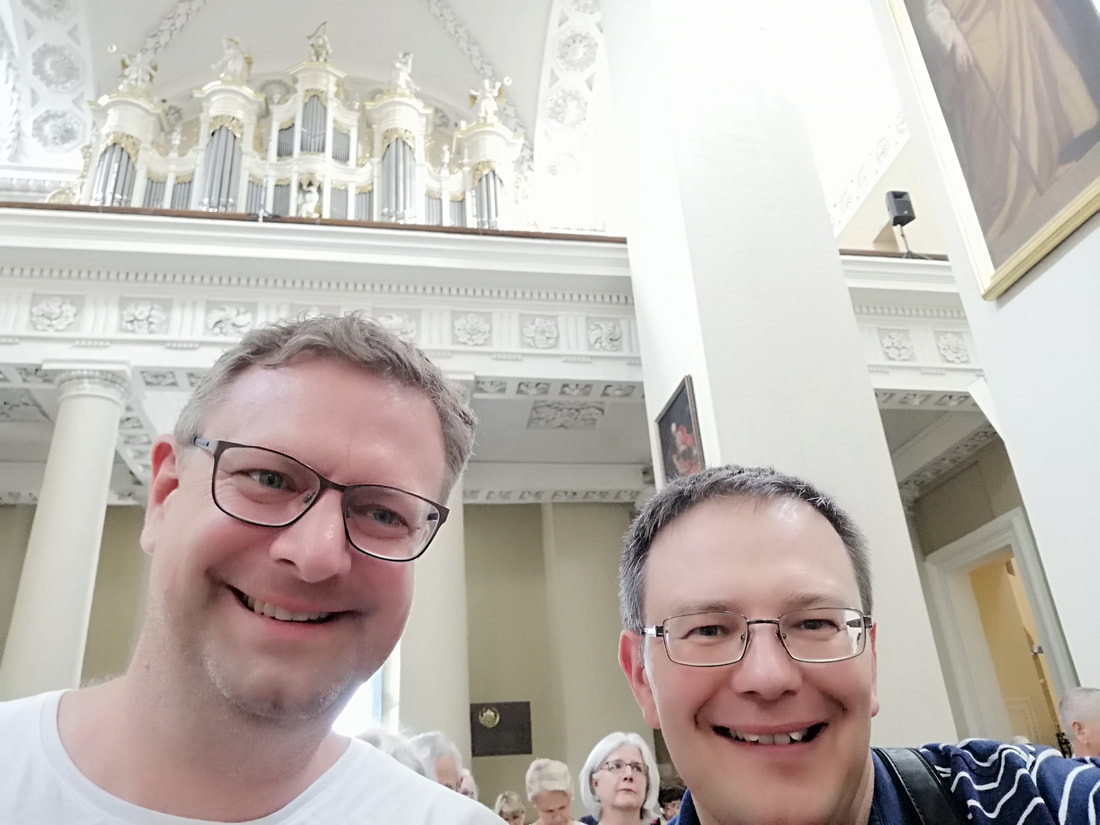
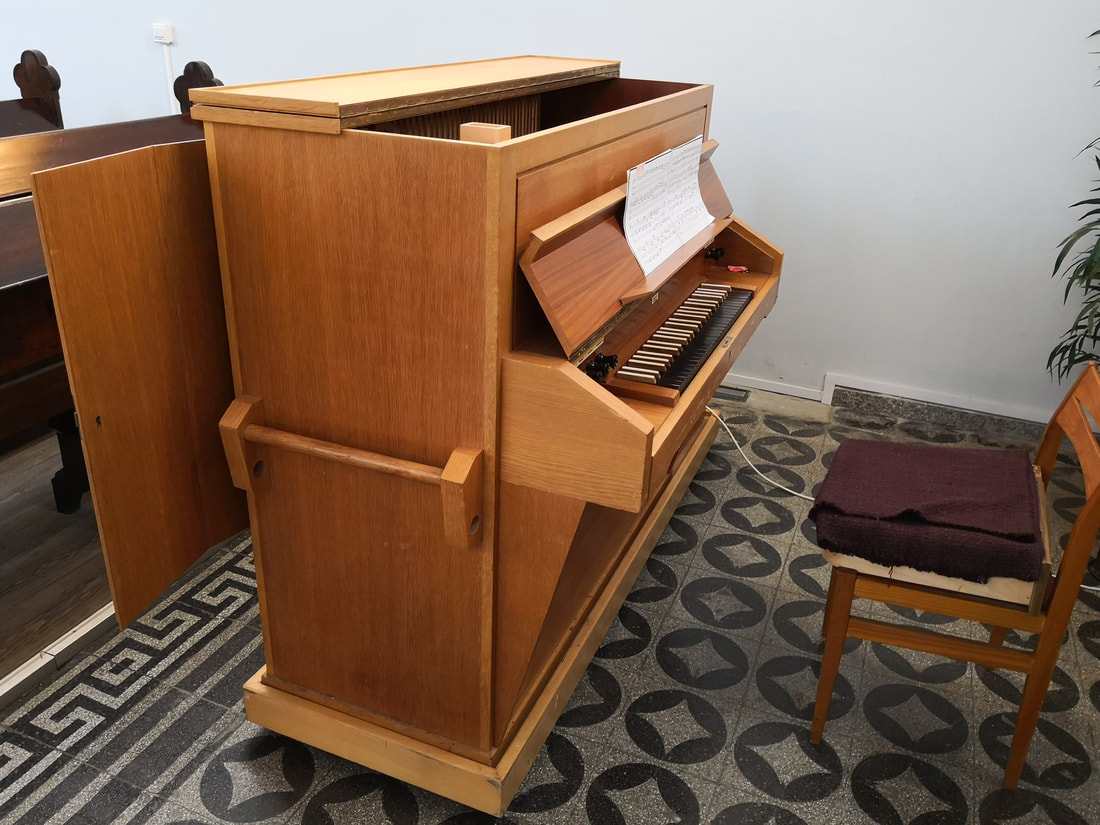
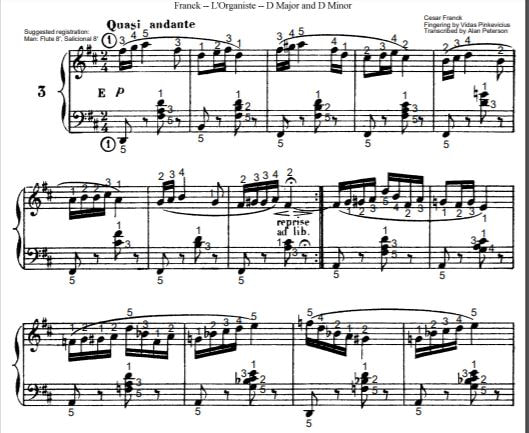
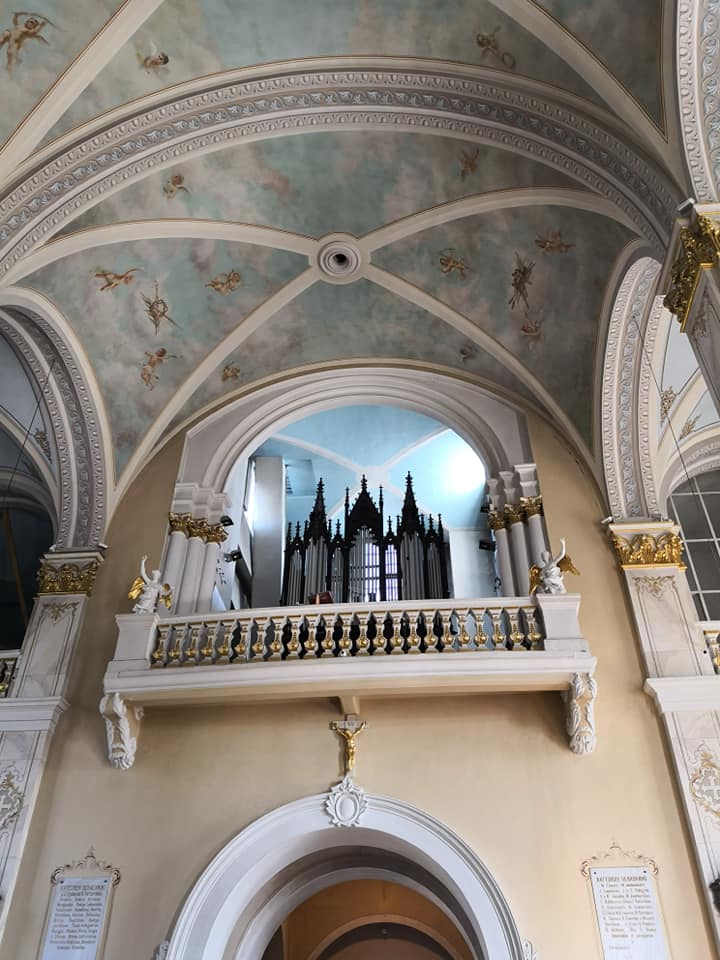
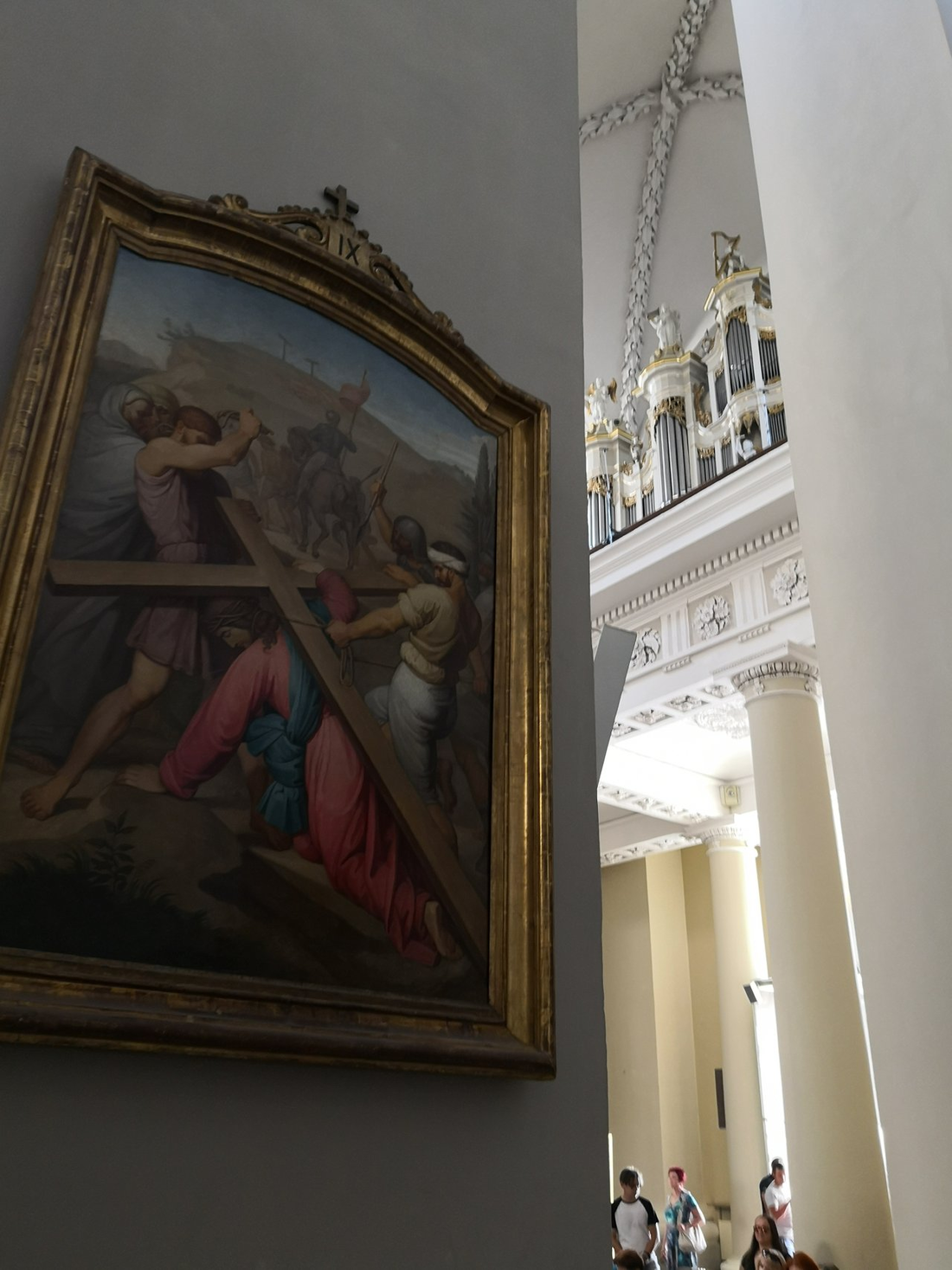
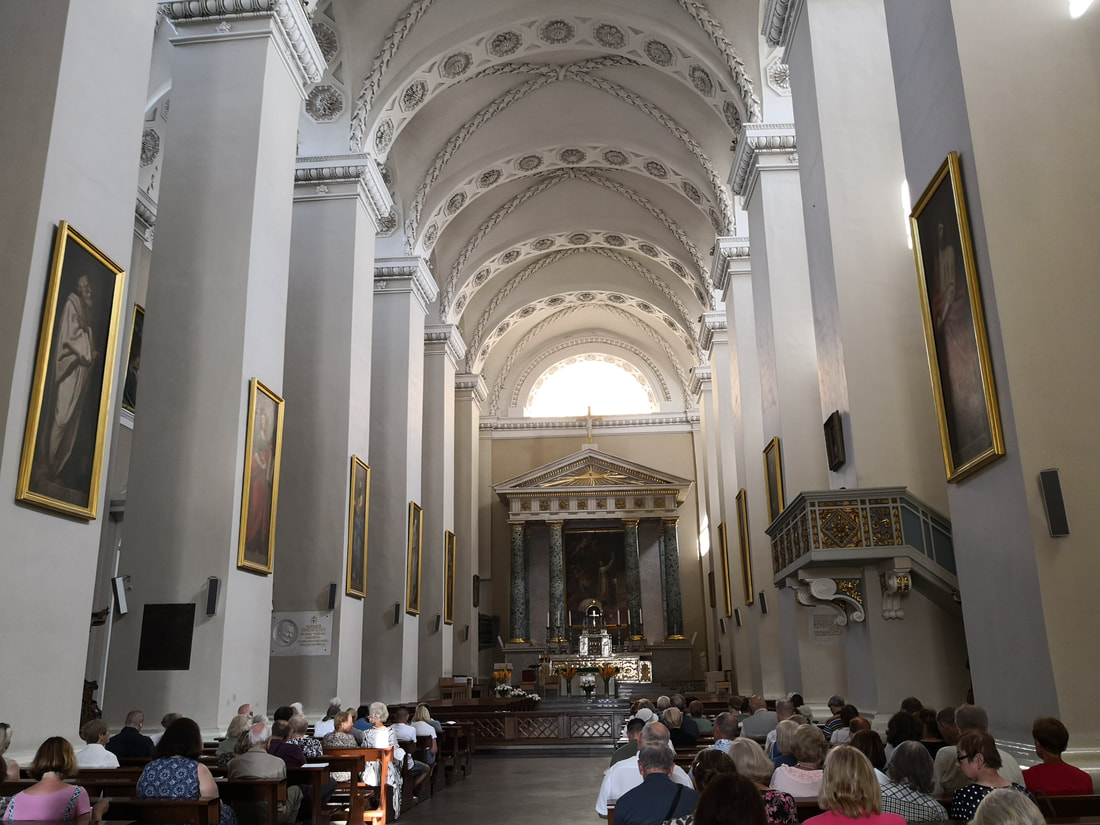




 RSS Feed
RSS Feed